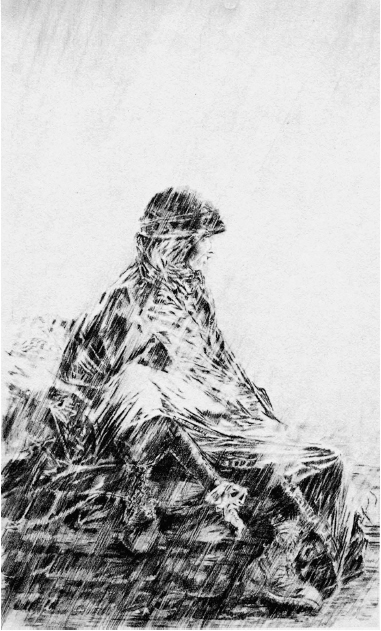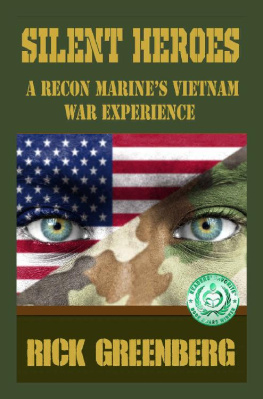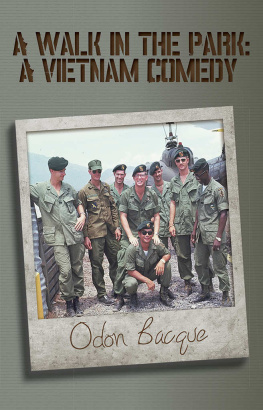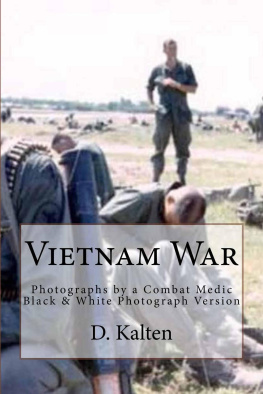For Self and
Country
For the Wounded in Vietnam
the Journey Home Took More Courage
Than Going into Battle

The latest edition of this work has been brought to publication with the generous assistance of Marguerite and Gerry Lenfest.
Naval Institute Press
291 Wood Road
Annapolis, MD 21402
1983 by Rick Eilert
All rights reserved. No part of this book may be reproduced or utilized in any form or by any means, electronic or mechanical, including photocopying and recording, or by any information storage and retrieval system, without permission in writing from the publisher.
First Naval Institute Press paperback edition published 2010
New Foreword and Afterword 2010 by Rick Eilert
ISBN 978-1-61251-451-2 (eBook)
The Library of Congress has cataloged the paperback edition as follows:
Eilert, Rick.
For self and country : for the wounded in vietnam the journey home took more bravery than going into battle / Rick Eilert.
p. cm.
1. Eilert, Rick. 2. LegWounds and injuriesPatientsUnited StatesBiography. 3. War woundsPatientsUnited StatesBiography. 4. United States. Marine CorpsBiography. 5. Vietnam War, 19611975Personal narratives, American. I. Title.
RD560.E34 2010
617.58044092dc22
2010008282

 Print editions meet the requirements of ANSI/NISO z39.48-1992 (Permanence of Paper).
Print editions meet the requirements of ANSI/NISO z39.48-1992 (Permanence of Paper).
9 8 7 6 5 4 3 2 1
This book is dedicated to the doctors, corpsmen,
and nurses of the Navy Medical Corps, to my
parents, to my wife, Cheryl, to my children,
Kerrie and Scott, and to those brave men in all
wars who endured the consequences of combat.
Contents
This is a book about a special kind of courage. And no one could tell that story better than Rick Eilert, who has now spent more than forty years exhibiting that kind of courage, day in and day out.
For most Americans, the concept of courage is embodied in the word Marine. For more than 230 years, the Marine Corps has drawn into its ranks men and women who want to be challenged. The worlds finest fighting force is defined more than any other way by its people. Marines, as the late Senator Paul Douglas once remarked, have always scorned ease and instead sought danger. And few who have joined those ranks have left feeling that their Marine Corps days were marked by boredom.
The legendary demands of recruit training require that one meet such challenges to earn the title United States Marine. Long, rigorous deployments in war and peace have always tested the tenacity, resilience, and adaptability of our Marines. Especially in war, this service has earned a special place in the history of our country, campaign by campaign, battle by battle, firefight by firefight, assault by assault, grenade by grenade.
The country knows full well the legendary feats of physical courage that have always characterized our Marine Corps. Anyone who has studied the history and practices of this service also knows the special, bottom-up leadership traditions characterized by an emphasis on moral courage, and on the duty of that leadership to show humility before the Marines they are entrusted to lead.
And yet, there is another type of courage that often eludes our appreciation and understanding. I like to call it daily courage.
The greatest examples of daily courage come, ironically enough, from those whose active Marine Corps service has ended with often grievous wounds, and yet who carry with them the same grit and quiet determination that caused them to serve so well in the first place. Since my own service in Vietnam, I have had the great honor to be in continuous contact with many of these quiet heroes. And heroes they are, just as certainly as the more acclaimed Marines who have been remembered for specific acts of battlefield gallantry.
Particularly for those who sought out the historic challenge and bravado of the Marine Corps, to have suffered life-changing, often defacing wounds, to have lost limbs, or to have been relegated to a wheelchair can be an emotionally devastating experience. And yet, I have always found it remarkable that so many of my fellow combat veterans moved forward with strength and purpose into lives that the unpredictable carnage of combat dealt them.
Rick Eilerts life, since he was wounded on the battlefield of Vietnam, is emblematic of this kind of courage. His book For Self and Country is a powerful tribute to those who served, who paid a terrible price, who suffered without great complaint, and who in many ways fell away from the public eye. Simply told, without embellishment or histrionics, it remains important more than twenty-five years after its original publication.
This kind of courage has always been a part of our national experience. It is evident today among many young veterans of Iraq and Afghanistan. Rick Eilerts timeless book provides a window into a place where few Americans have ever had to live. And along the way, he quietly demands that we understand and respect their journey.
SENATOR JIM WEBB
10 November 2009
I want to thank the many people who helped nurse me back to life and, later, helped me create this book.
Dr. Boone Brackett always treated his young patients with respect and dignity. He still works unceasingly to help heal our bodies and our spirits. Bill Corson, a fine combat commander who now is dedicated to the cause of wounded veterans, understood what I was trying to write and found an audience for me. My agent, John Cushman, and my editor, Bruce Lee, believed in me and my story, and I benefited from their assistance and wise counsel. Steve Markley and all the other men of Ward Three South shared the agony of our wounds and the confidences of our youth. The friendship of these men helped me carry my own load. Joe Fornelli and Dale Samuelson supplied the excellent art for this book. Finally, I thank the men of 3-26, especially Penna, Horne, Neely, Kuehnlein, Jones, Chief, Schott, Hawkins, Madison, and the young, freckle-faced, tattered corpsman, Doc Toner, who saved my life and was killed in action months later.
For all that you gave me, I rejoice; for all that we lost, I shall never forget.
FOR SELF AND COUNTRY

Next page









